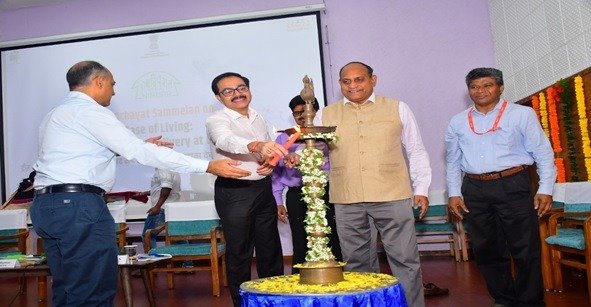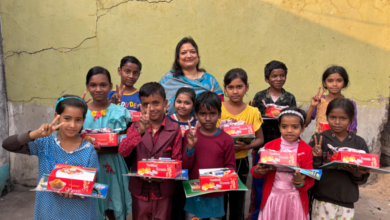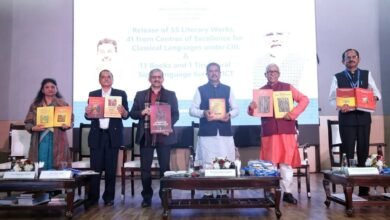Ministry of Panchayati Raj holds regional workshop on grassroots service delivery
By Doruvu Paul Jagan Babu:Bureau Chief

Hyderabad: Ministry of Panchayat Raj organized the first regional workshop under the Panchayat Sammelan series on “Ease of Living: Enhancing Service Delivery at the Grassroots” at the National Institute of Rural Development and Panchayati Raj (NIRD&PR) in Hyderabad. Vivek Bharadwaj, Secretary, Ministry of Panchayati Raj, inaugurated the event, stressing the government’s commitment to transforming every panchayat into a hub for efficient and transparent services. He highlighted that the Sammelan marks a significant step in this transformation process.

Self-reliance and service delivery: A key to voluntary tax compliance
Bharadwaj underscored the link between high-quality service delivery and citizens’ willingness to pay taxes. “Effective service delivery with ‘seva bhaav’ (spirit of service) strengthens rural self-reliance and voluntary tax compliance,” he said. He further emphasized the importance of documenting successful service models and promoting collaboration between states with exemplary frameworks. Additionally, Bharadwaj announced the provision of 22,164 computers to Gram Panchayats across various states, along with the construction of 3,301 Gram Panchayat Bhawans, which will include Common Service Centres (CSCs) to bolster digital infrastructure.

Equipping panchayat representatives for governance transformation
G Narendra Kumar, Director General of NIRD&PR, addressed the gathering, focusing on the role of Panchayat representatives and functionaries in driving grassroots change. “By equipping them with cutting-edge tools and knowledge, we are laying the foundation for a governance revolution that begins from the ground up,” he remarked, pointing out the importance of training and resources for effective local governance.
Digital interventions and collaborative learning highlighted
Alok Prem Nagar, Joint Secretary, Ministry of Panchayati Raj, highlighted digital interventions like Service Plus of NIC and RapidPro of UNICEF. He praised the innovative use of technology at the workshop, which was live-streamed in eleven languages via the Bhashini platform. This linguistic outreach, covering languages such as Bengali, Hindi, Tamil, and Telugu, was a testament to the Ministry’s commitment to inclusive governance.
Collaboration between states for enhanced rural service delivery
Representatives from Andhra Pradesh, Telangana, Gujarat, Jharkhand, Madhya Pradesh, Mizoram, and Odisha participated in the workshop, sharing insights on challenges and opportunities in enhancing service delivery at the grassroots level. Lokesh Kumar DS, Secretary of Panchayat Raj and Rural Development, Telangana, thanked the Ministry for organizing the event, which aimed to foster innovation and collaboration between states.

AI and digital public goods: Future of rural governance
The sessions explored how technology can streamline rural service delivery, with presentations from the Wadhwani Foundation, Bhashini, and UNICEF showcasing the role of Artificial Intelligence and Digital Public Goods (DPGs). The National Informatics Centre (NIC) also demonstrated the ServicePlus platform, which allows Panchayats to deliver services online. NIRD&PR provided a session on benchmarking rural service delivery, offering valuable frameworks to enhance service effectiveness. The event concluded with participants gaining actionable strategies to improve governance at the Panchayat level.









